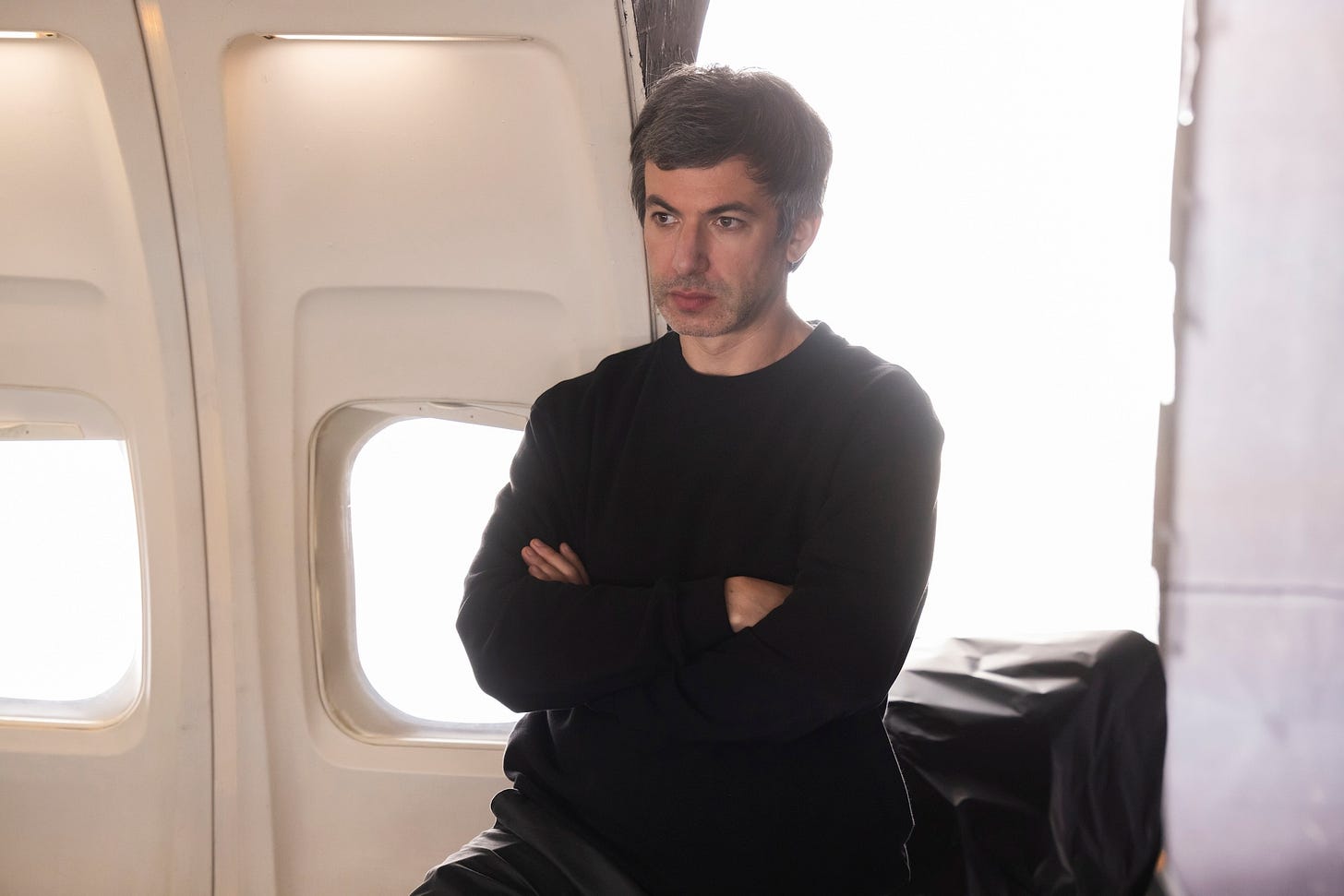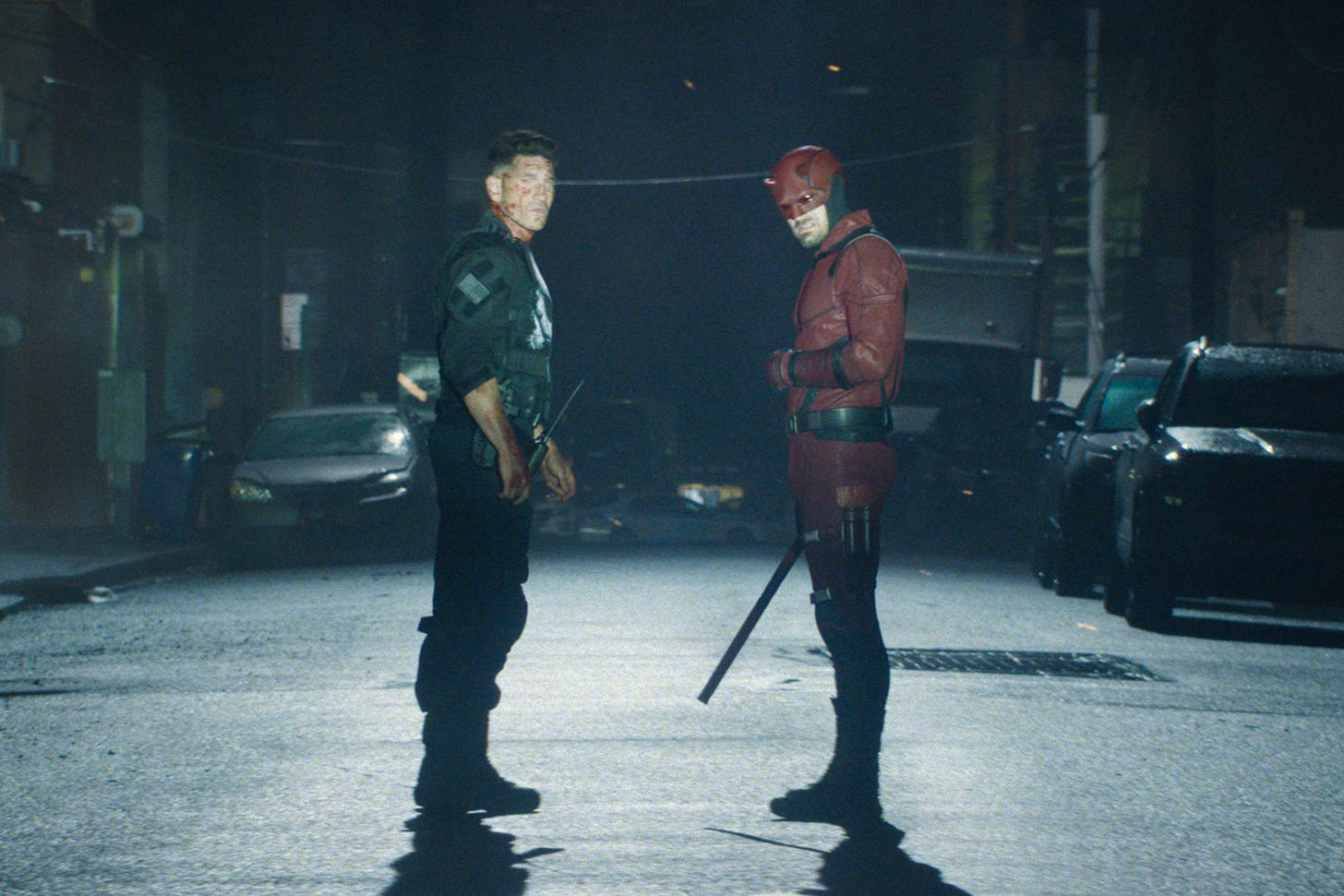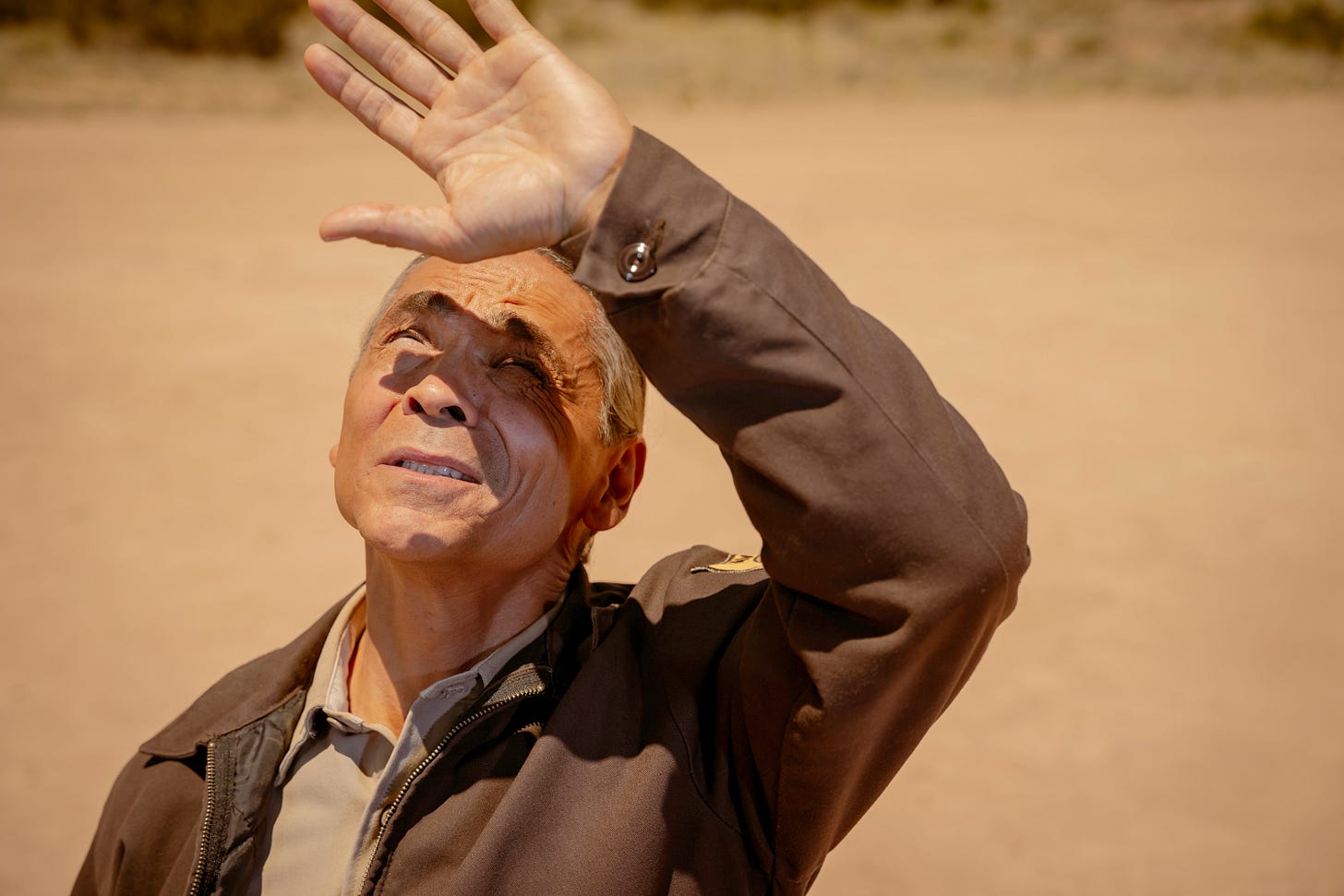'Rehearsal' time again
Nathan Fielder's back, the 'Daredevil: Born Again' finale, a classic 'Dark Winds' episode, and more
This week’s What’s Alan Watching? newsletter coming up just as soon as I turn up the dial on the constructo-meter…
Yes, I know I said we’d be off this week. But my travel plans changed, and enough of note happened in the TV world to be worth a rapid-fire run through things.
Fly the Nathan skies?
Let’s start with this weekend’s return of The Rehearsal to HBO. The first season aired so long ago, this newsletter didn’t even exist yet, though I imagine the comments section would have featured a lot of debate about what was and wasn’t real in the finale that I so strongly disliked.
Season Two drastically ups the scale of things, as Nathan Fielder attempts to solve the problem of airline crashes, when of course he’s again trying to solve the problem of why nobody likes him. (Or, rather, why nobody likes the fictionalized version of himself he’s been playing for years.) What I found over the course of watching the six-episode season is that while I’m still very much amused by the ridiculous, expensive lengths Fielder manages to take his problem-solving, this particular issue becomes a bit too big for the show to handle. And my interest in “Nathan” struggling to connect with other people isn’t particularly high at this point. There are parts I watched with awe, and parts that made me laugh harder than almost any recent comedy. And there are other parts that felt at least five degrees off from working for me.
The city without fear?
Random thoughts on the end of Daredevil: Born Again Season One:
The return of Karen in the finale cast a pretty harsh light on what flimsy placeholders most of the new supporting characters were. I again ask how the original showrunners here could have looked at the Netflix seasons and decided that their first order of business was to kill Foggy (off-camera, apparently!) and write out Karen, when the chemistry between Charlie Cox, Deborah Ann Woll, and Elden Henson was among their greatest strengths. I assume Woll will be a regular for the second season. If not, what are we even doing here?
Speaking of the showrunner change, Dario Scardapane said that the premiere and these last two episodes were the only ones of the season that were entirely made under his watch. But you can’t really look at the end of the season in a vacuum, because he still had to work with all the stories set up by his predecessors. Even allowing for the Frankenstein nature of the season, the finale felt much more like the penultimate episode of a season than the end of one. It set up the main conflict for Season Two without feeling like it resolved much of anything from this year, even on a character level. (Related: Matt spends most of the season’s first six episodes refusing to get back into costume, then just says “Fuck it,” and does it, anyway. Why bother with the Refusal of the Call nonsense if you’re not going to bring it to an interesting climax?)
The Frankensteining wasn’t just represented in plot, but in tone. Somehow, the same season of television was able to do an episode with Ms. Marvel’s dad, representing the most kid-friendly of all the MCU shows so far, and then also show Kingpin ripping the jaw off the commissioner of the NYPD in one of the more grisly TV deaths I’ve seen in a while.
I will never complain about this show bringing back Jon Bernthal, but it felt very silly that the Punisher-inspired cops would let Frank kill several of their members in the futile hopes of him becoming their leader. However much they may revere him, they’re still tribal first and foremost.
When Matt told Karen, “We need an army,” my first thought was to wonder if this would be an excuse to bring back The Defenders. More likely, it’ll be a collection of heroes specific to this era, including what I assume will be a new White Tiger, plus Punisher and Swordsman once they’re freed from Fisk’s cages. (If Season Two could not waste Tony Dalton again, I would really appreciate that. That, and at least another self-contained episode like the bank heist.)
Meanwhile, back in Jackson
Because I assumed I’d be away all week, I already shared my Last of Us season premiere recap in a Sunday night chat. But if people have further thoughts, now is the time. (Just keep any game spoilers out of it, please.)
We’ve got spirit world, yes we do! Joe’s got spirit world, how about you?
Finally, we come to the main reason I decided not to take the week off: the sixth installment of Dark Winds Season Three, which I already called one of the frontrunners for Episode of the Year.
As drama departure episodes(*) go, this is a relatively familiar type, where a character has a dream, drug trip, or other kind of journey within their own mind, and emerges with wisdom they couldn’t have gained through their normal waking lives. The Sopranos is the most famous for it, but lots of shows ranging from Buffy to Grey’s Anatomy to The Leftovers have done it.
(*) As a reminder, departure episodes are not to be confused with bottle episodes, which are filmed with an eye on reducing costs, and thus tend to be filmed entirely on preexisting sets, with a minimum of guest characters. With lots of outdoor scenes in the desert in both day and night, special effects, and the casting of Robert Knepper from Prison Break as the priest, this is no more a bottle episode than the Severance one about Harmony’s hometown.
This is just an exceptional example of the trope. In the waking world, a wounded and drugged Joe tries to evade what he thinks is a monster. But he keeps passing out and finding himself in a dream world, where he has to work through his guilt over murdering B.J. Vines by confronting a long-repressed memory about the priest who molested his little brother — and who was ultimately murdered by Joe’s cop father.
Given the show’s focus on Navajo culture, and how often it has dealt with Navajo spiritualism in past seasons, it makes dramatic sense to have Joe work through the problem this way, rather than do an episode where he starts digging through old file boxes and piecing it together that way. And it leans wonderfully into the vulnerability that Zahn McClarnon has been playing so well throughout the season. No matter how many gray hairs he has on his head and lines on his face, when Joey finds himself back in this time, he immediately becomes the 12-year-old boy who was so worried for his brother. It’s a spectacular performance from him, at a level even higher than the already great one he usually reaches here.
The episode also emphasizes the most compelling part of Season Three. The two mysteries are a bit more threadbare than in past seasons, and the attempt to combine a case on the reservation with what Bernie is up to down at the border isn’t quite working. But Season Two concluded with Joe violating one of his fundamental beliefs, and this season has very smartly and powerfully reckoned with that.
That’s it for this week! What did everybody else think?






Any thoughts on the Mythic Quest ending/alternate cut (which just gets rid of the kiss and then has another 30 seconds of banter, before ending on Nothing's Going to Stop Us Now rather than Burning Down the House)?
I didn't like much of this season (or of the spin-off), but I'm glad it doesn't end on that awful choice.
The S2 premiere of The Last of Us killed it! Character building, humor and tension. That’s how you do a sophomore season premiere. Some other shows should take notes (cough, Severance, cough).